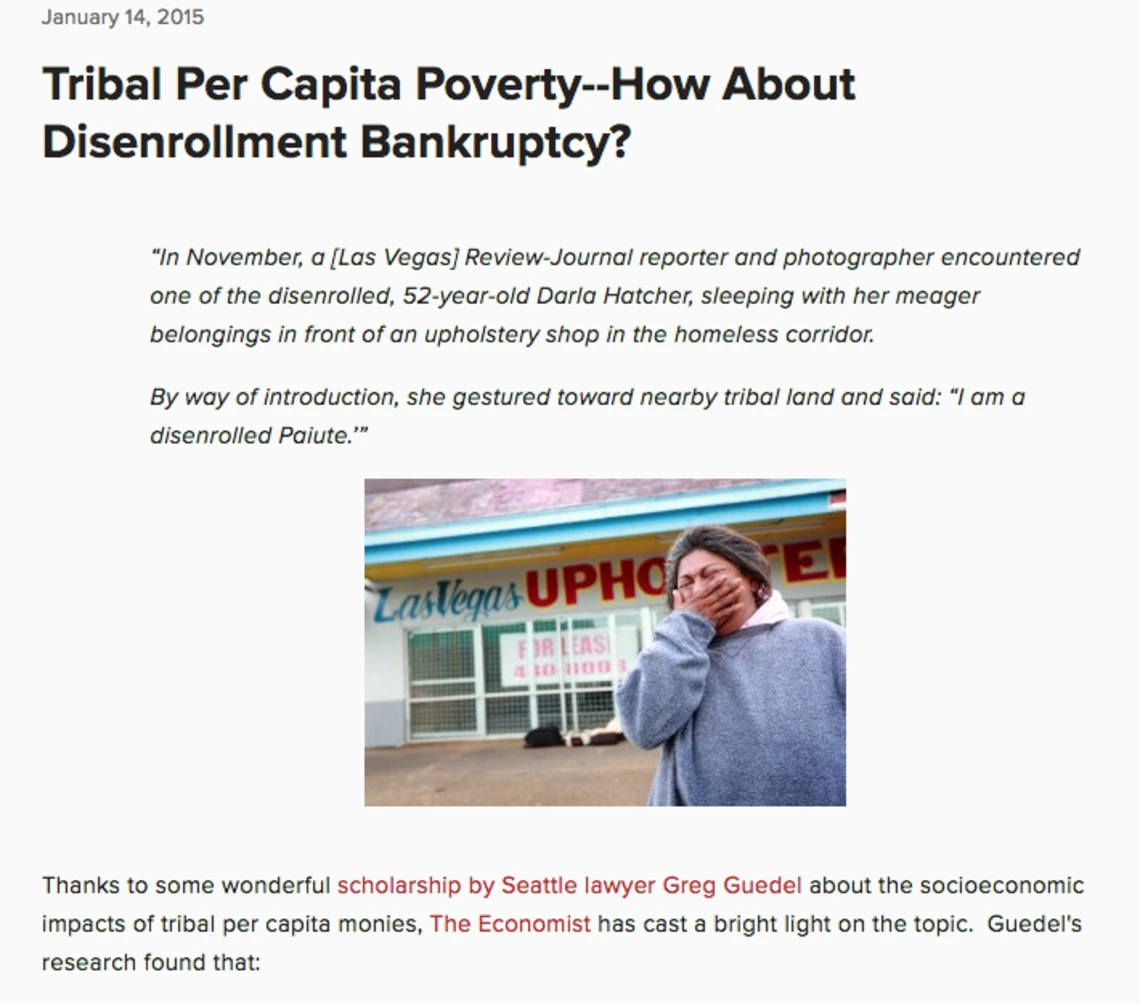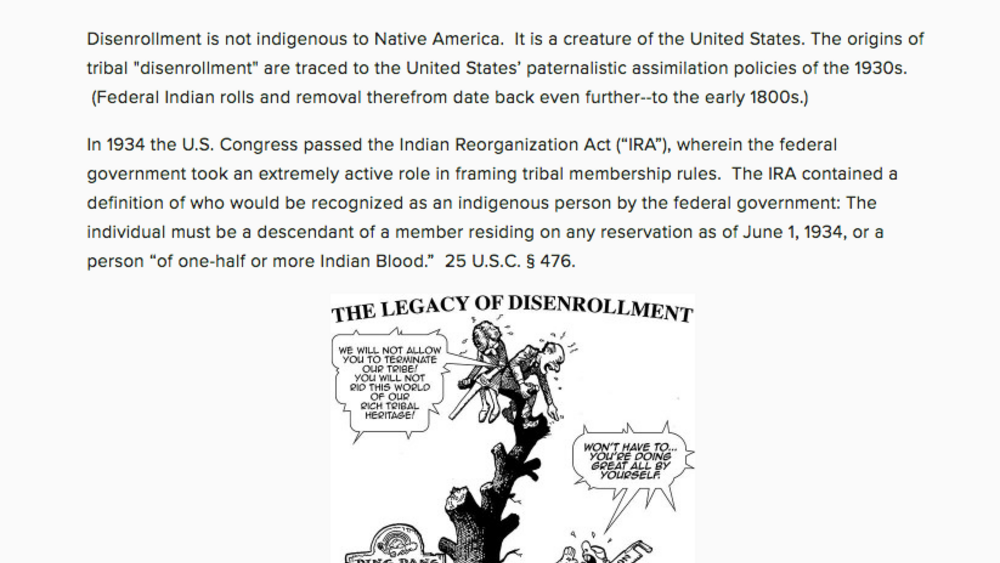“In November, a [Las Vegas] Review-Journal reporter and photographer encountered one of the disenrolled, 52-year-old Darla Hatcher, sleeping with her meager belongings in front of an upholstery shop in the homeless corridor.
By way of introduction, she gestured toward nearby tribal land and said: “I am a disenrolled Paiute.’”
Thanks to some wonderful scholarship by Seattle lawyer Greg Guedel about the socioeconomic impacts of tribal per capita monies, The Economist has cast a bright light on the topic. Guedel’s research found that:
From 2000-2010, gaming Tribes in the Pacific Northwest that did not issue per capita payments to their members did better in reducing poverty rates than the gaming Tribes that issued per capita payments.
In other words, tribal per capita monies are not alleviating Indian poverty; they are exacerbating it...
Additional Information
Galanda, Gabriel. Tribal Per Capita Poverty—How About Disenrollment Bankruptcy? Galanda Broadman, PLLC. Seattle, Washington. January 15, 2015. Opinion. (http://www.galandabroadman.com/blog/2015/01/tribal-per-capita-poverty-how-about-disenrollment-bankruptcy, accessed June 3, 2024)



